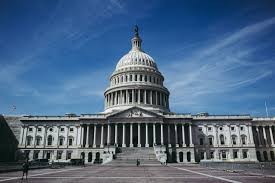
Recently, thousands of Donald Trump’s supporters stormed the US. Capitol, and interrupted the Congress where lawmakers were about to certify President-elect Joe Biden’s win in the November 3 election. Subsequently, Trump was charged with inciting violence against the government of the United States”. There were calls from Democrats to impeach President Trump, a Republican, in his final week in power. What is impeachment? Who can be impeached from office? How is it done? Here’s a primer.
What it means
Impeachment is a proceeding that is initiated by a legislative body against a top government official for serious misconduct. The charges are put forth, and the official is tried, while still in office. Different countries have their own impeachment processes.
Origin
The first recognised case of impeachment was in 1376 during the reign of Edward III in England. The process was sparingly used till the 17th Century, when it was revived to eliminate unpopular subjects of the Crown. However, after the unsuccessful impeachment trials of Warren Hastings (1788-95) and Lord Melville (1806), it fell out of use in Britain.
The U.S. process
In the U.S., the power to impeach a President rests with Congress (that includes the House of Representatives and the Senate). According to the US, Constitution, a President shall be removed from office impeachment for, and conviction of treason, bribery, or other high crimes and misdemeanours”. This also applies to the Vice President and all civil officers of the US.
The Indian president
In India, impeachment is raised in either House of Parliament. A President can face Impeachment for ‘violation of the Constitution’. There has to be a majority of no less than two-thirds of the total membership of both houses of Parliament.
Article 61 lays down that when a President is to be either impeached the charge shall be preferred by House of Parliament The other House will investigate or cause the charge to be investigated. The President has the right to appear or to be represented at such investigations
Similarly, Parliament can introduce a motion seeking the removal of judges, including the Chief Justice of the Supreme Court and High Courts. However, though the process that ensures checks against misconduct is quite similar the word impeachment does not figure in the Constitution in the context of judges (Article 124-4).
Why is impeachment necessary?
Without impeachment there will be no system of checks and balances to ensure that the person who is legally considered to be the most important functionary in the political system does not abuse his office.
Past notable impeachments
The first U. S. President to face impeachment was Andrew Johnson (1868). Other notable impeachments include those against Presidents Richard Nixon (1973), Bill Clinton (1998) and Donald Trump (2019). If the process is taken up, Trump with be the first president to face impeachment twice.
In India, no President has faced impeachment so far.
Picture Credit : Google

